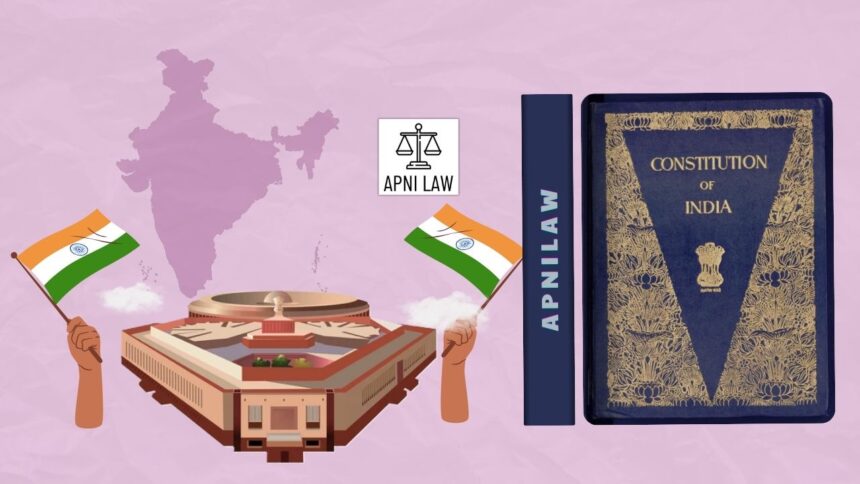Introduction
The Indian Constitution contains special provisions that come into force when the nation faces a threat to its security. One of the most important emergency provisions is Article 358, which deals with the suspension of the freedoms guaranteed under Article 19. These freedoms form the core of democratic life, yet the Constitution allows their temporary suspension during a specific type of emergency. Understanding Article 358 is essential because it explains how national security concerns can temporarily override individual liberties. It also shows how constitutional checks ensure that such a suspension remains limited and controlled.
Meaning of Article 358
Article 358 states that when a Proclamation of National Emergency is issued on the grounds of war or external aggression, the fundamental rights under Article 19 automatically remain suspended. This suspension continues for the entire period of the Emergency. During this time, the State gains wider powers to take immediate actions without being constrained by the freedoms of speech, movement, assembly, profession and other rights guaranteed under Article 19. The Constitution allows this step because situations of war or external aggression require quick decisions, and certain freedoms could interfere with national security or defence.
Scope After the 44th Constitutional Amendment
Before the 44th Amendment, Article 358 suspended Article 19 even during emergencies declared on the ground of internal disturbance. This gave the government enormous power and often led to misuse. After witnessing the abuse of emergency powers during 1975–77, the 44th Amendment narrowed the scope of Article 358. It clarified that Article 19 will be suspended only during an Emergency declared on the ground of war or external aggression. It removed internal disturbance as a ground for suspension. This amendment created a stronger safeguard for civil liberties and prevented the repetition of past misuse.
What Happens to Article 19 During Suspension
Once Article 19 gets suspended, any law made by the government or any action taken by authorities cannot be challenged in court on the ground that it violates Article 19. The courts cannot intervene to protect citizens under Article 19 during this period. However, other fundamental rights remain available unless separately suspended under Article 359. This distinction shows the careful design of emergency provisions. Article 358 focuses only on the freedoms under Article 19 because these rights may directly interfere with defence and security measures.
Difference Between Article 358 and Article 359
Article 358 creates an automatic suspension of Article 19. Courts cannot question laws or actions that restrict freedoms under this Article. Article 359, on the other hand, allows the President to suspend the right to move courts for the enforcement of specific fundamental rights during an emergency. Article 359 does not suspend the rights themselves but suspends the remedy. Article 358 suspends the rights; Article 359 suspends the enforcement. This distinction is crucial to understanding how emergency powers operate.
Judicial View on Article 358
The Supreme Court has examined Article 358 in several cases. In Bennett Coleman v. Union of India, the Court discussed the limits of government action even during emergencies. Although Article 19 remained suspended, the Court held that actions must still follow constitutional principles and cannot become arbitrary. In A.K. Gopalan and later in ADM Jabalpur, the judiciary faced criticism for not protecting civil liberties during emergencies. These cases ultimately shaped the 44th Amendment, which strengthened constitutional safeguards. The Court now maintains that emergency powers must always align with constitutional morality.
Practical Use of Article 358
The only time Article 358 operated fully was during the 1962, 1971 and 1975 emergencies. Actions such as media restrictions, preventive detentions and bans on public gatherings were taken without the protection of Article 19. After the 44th Amendment, the government cannot suspend Article 19 during emergencies based on internal disorder. This reform reduced the possibility of political misuse. Today, Article 358 serves as a mechanism to protect national security while maintaining constitutional discipline.
Relevance in India’s Constitutional Structure
Article 358 reflects the Constitution’s intention to protect the country during extraordinary situations. At the same time, it ensures that the suspension of rights remains temporary and limited. The framers understood that unrestricted freedoms during war or external aggression could weaken national defence. However, they also built safeguards to prevent long-term harm to democracy. After the 44th Amendment, Article 358 became a balanced provision that maintains security without compromising core constitutional values.
Conclusion
Article 358 demonstrates how the Constitution prepares the nation for emergencies while safeguarding democratic principles. It allows the suspension of Article 19 only during national threats caused by war or external aggression. The 44th Amendment narrowed its scope, ensuring that citizens’ freedoms cannot be taken away during internal crises. This provision shows the balance between national security and individual liberty. It remains an important part of constitutional law, especially for students, aspirants and citizens who wish to understand how India responds to extraordinary challenges while preserving its democratic character.
For any specific query call at +91 – 8569843472








